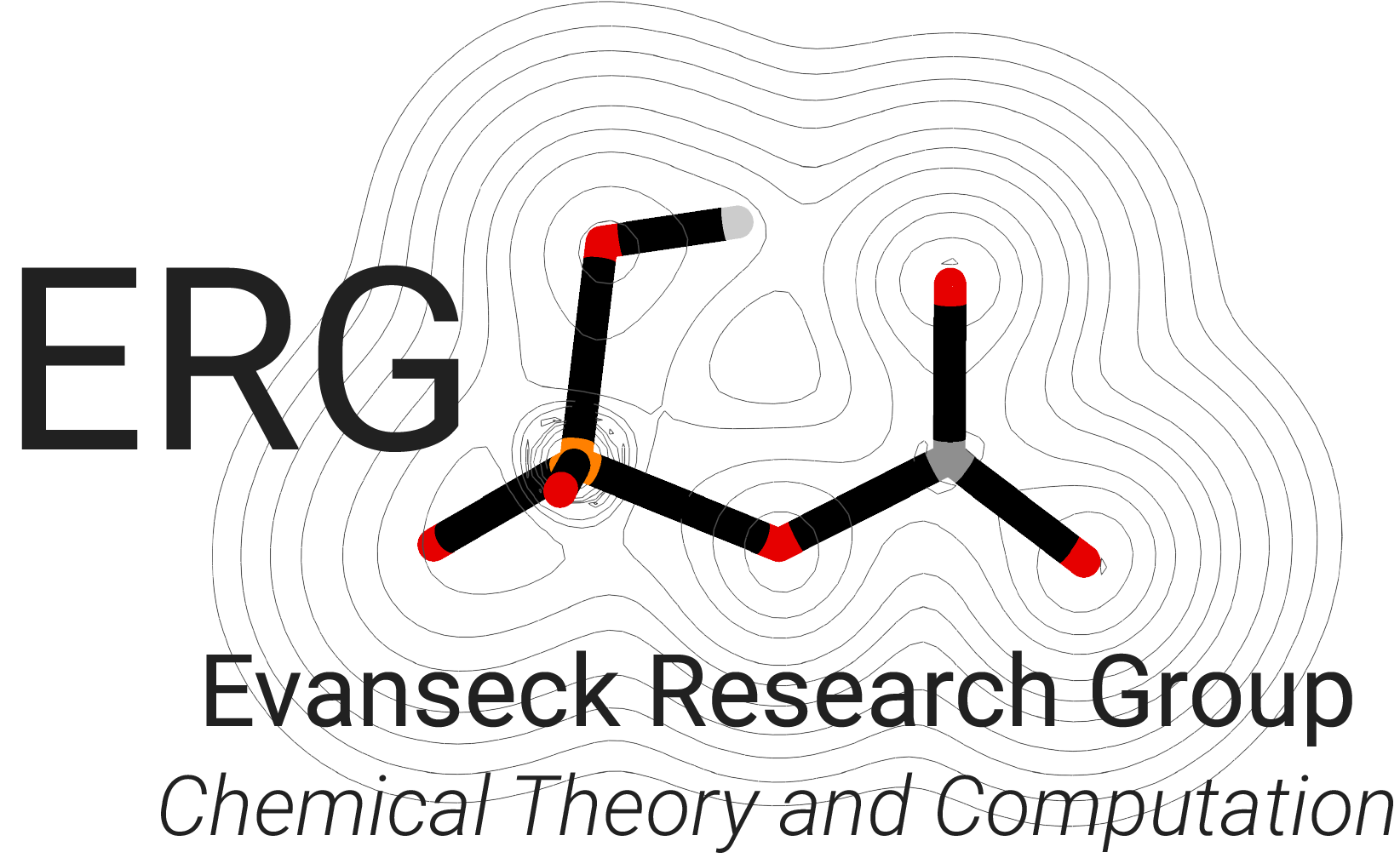

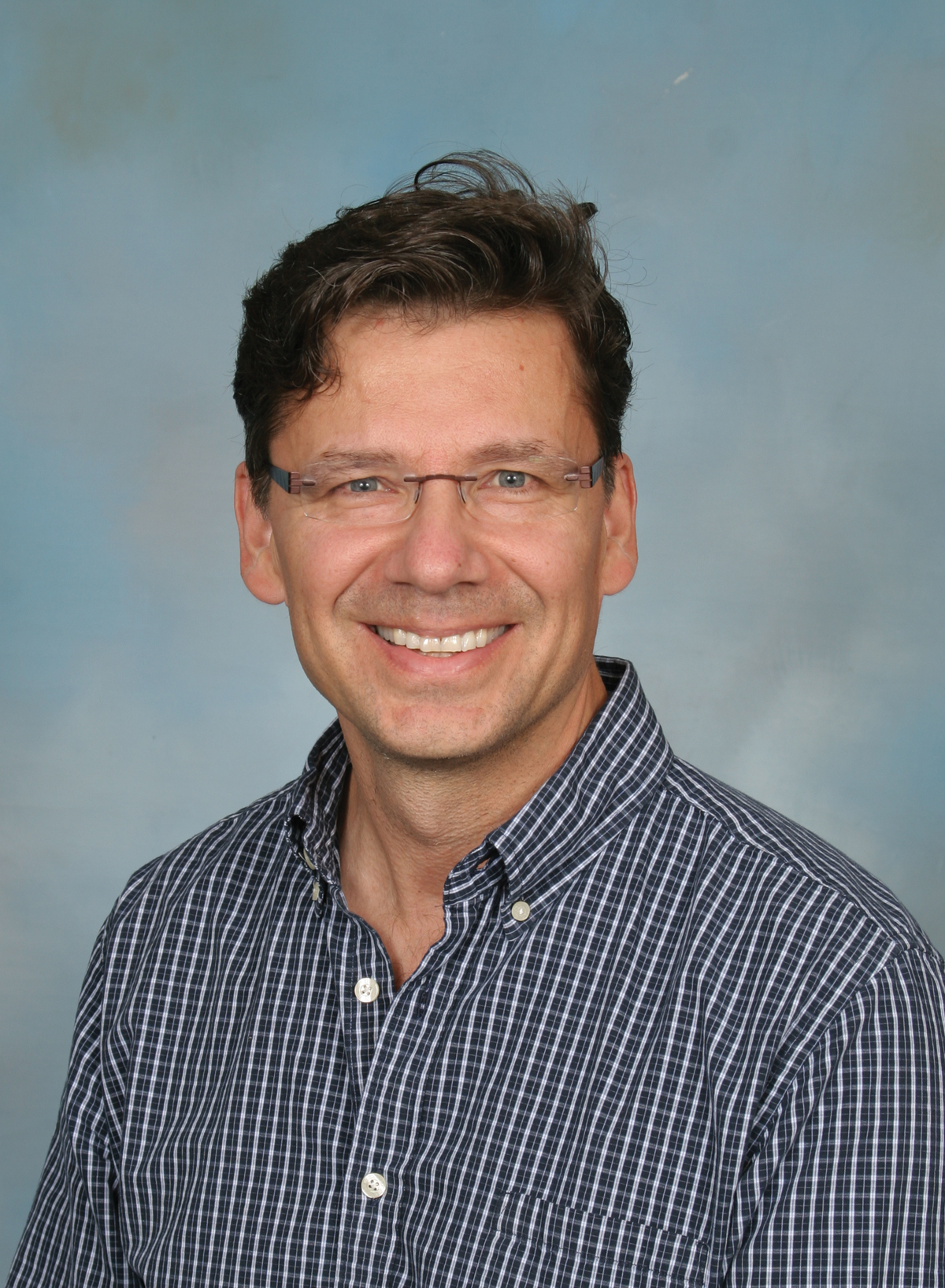
Jeffrey D. Evanseck received B.S. degrees in computer science and chemistry from Purdue University (1986) and published his first J. Am. Chem. Soc. manuscript as an undergraduate researcher on the SN2 mechanism with Professor W. L. Jorgensen.
He received a Ph.D. (1990) degree working with K. N. Houk at UCLA in the area of computational and theoretical organic chemistry. He applied his knowledge of organic chemistry to biophysical systems, when he became a postdoctoral fellow at Harvard University working with M. Karplus to study the visualization, dynamics, and catalysis of important enzymes.
In 1994, he joined the faculty at University of Miami, and was the Chair of the South Florida Section of the American Chemical Society (ACS, 1996-1999), recipient of the ACS Young Researcher Award in 1995, and earned the University Excellence in Teaching Award in 1999.
He moved to Duquesne University in 2000 as the Director of the Center for Computational Sciences at Duquesne University to promote education, research, and small business growth in Southwest Pennsylvania. He was the Secretary (2001-2004) and Chair (2004-2007) of the Computers in Chemistry (COMP) Division of the ACS. He was promoted to full Professor in 2004, and was honored as the first Fr. Joseph Lauritis Chair in Teaching and Technology at Duquesne for his scientific distinctions in chemical theory, computation, and education.
He has been a principal driving force in the vision, design and support of the successful summer undergraduate research program at Duquesne University. Prof. Evanseck is responsible for establishing a dynamic and novel National Science Foundation (NSF) Research Experiences for Undergraduate (REU) site that involves regional faculty and student teams that has served over 300 students and 20 faculty members over the last decade. In 2010, he became the Chair of the NSF Chemistry REU Leadership Group to create meaningful dialog and feedback between the NSF and active principal investigators of REU Sites. In the same year, he became the Chair of the ACS Advisory Board for Society of Education (SOCED) for the 2013 ACS New Orleans national meeting of undergraduate programming.
Beginning in 2008, he took on the role of Faculty Mentor of the ACS Student Members Chapter and has elevated the Chapter for an award every year, accentuating their achievements with the Outstanding Award from the ACS from 2012 to 2014. Importantly, he has continued Theodore Weismann’s vision with the Pittsburgh’s local section of the ACS in creating a regional ACS Meeting held every spring, which has dramatically increased the participation of students and regional faculty. His efforts have culminated in being selected as a 2012 ACS Fellow, 2013 ACS Ambassador, 2013 Duquesne University Advisor of the Year Center for Student Involvement, and 2011 Excellence in Service and Mission Awards from Duquesne University and the Bayer School of Natural and Environmental Sciences.
At Duquesne, he was been recognized for his impact upon the teaching environment with the University recognition of “Teacher of the Year” from the Omicron Delta Kappa National Leadership Honor Society in 2011, the University Creative Teaching Award Center for Teaching Excellence in 2013, the Excellence in Teaching from the Bayer School of Natural and Environmental Sciences Award in 2015, and the President’s University Award for Excellence in Teaching in 2015. To complement his teaching and research efforts, he was awarded the President’s Award for Excellence in Service to the Mission in 2011 from Duquesne University and induction into the University’s Scholarship Hall of Fame Office of Research in 2013. Professor Evanseck is an authority on theoretical organic and biophysical chemistry. He is the author of over 50 publications that have engendered more than 6,000 citations. Specifically, his group is involved in developments of rules and theory to understand chemical reactivity, and the computer modeling of complex (bio)organic reactions.
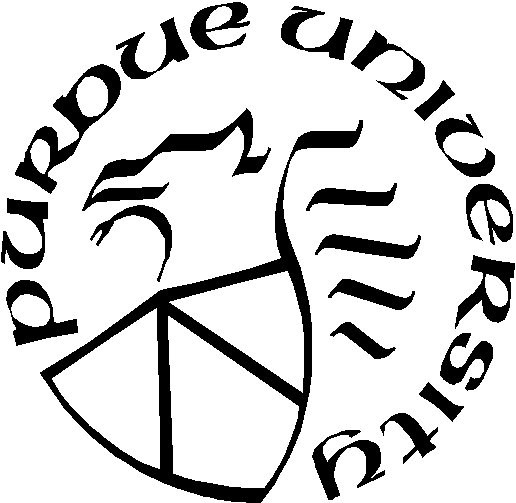
B.S. degrees in computer science and chemistry from Purdue University
1986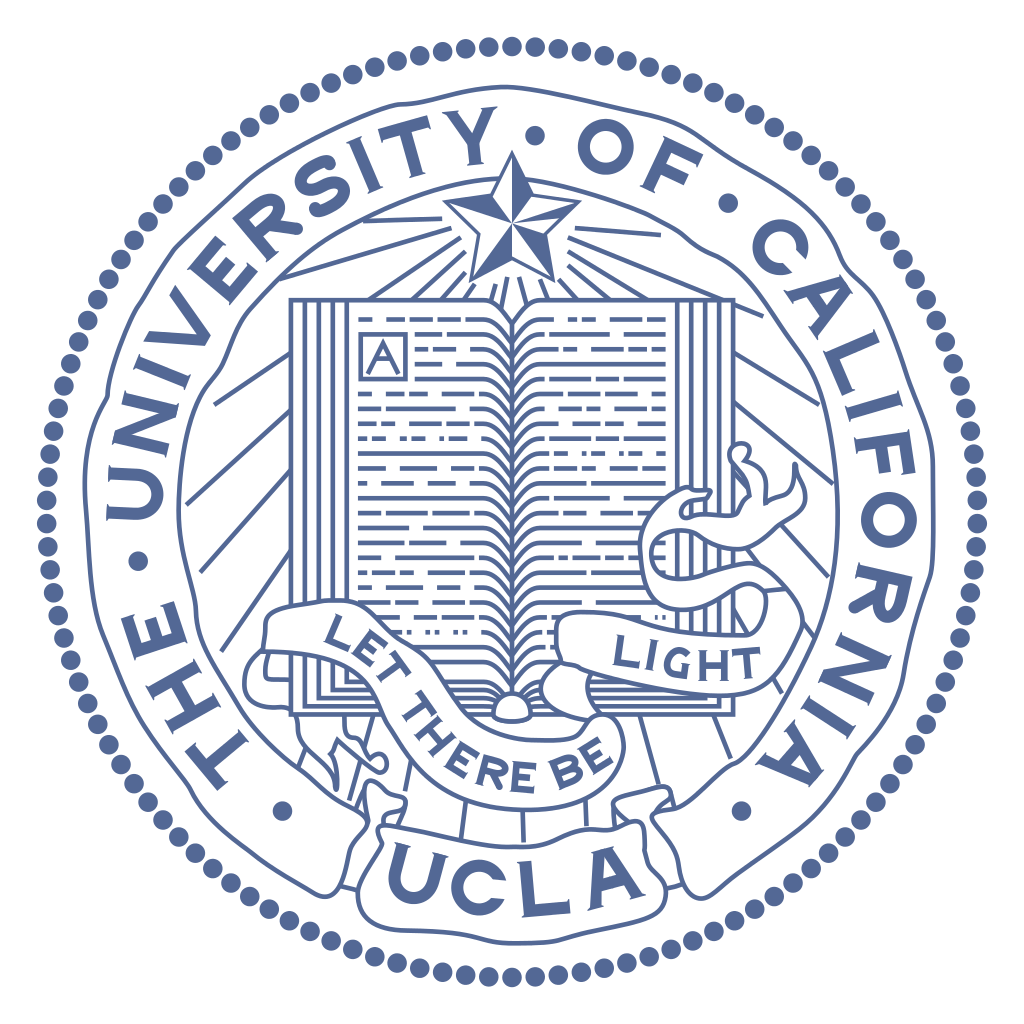
Ph.D. degree in Physical Chemistry working with K. N. Houk at UCLA
1990
Harvard University postdoctoral fellow working with M. Karplus to study the visualization, dynamics, and catalysis of important enzymes
1990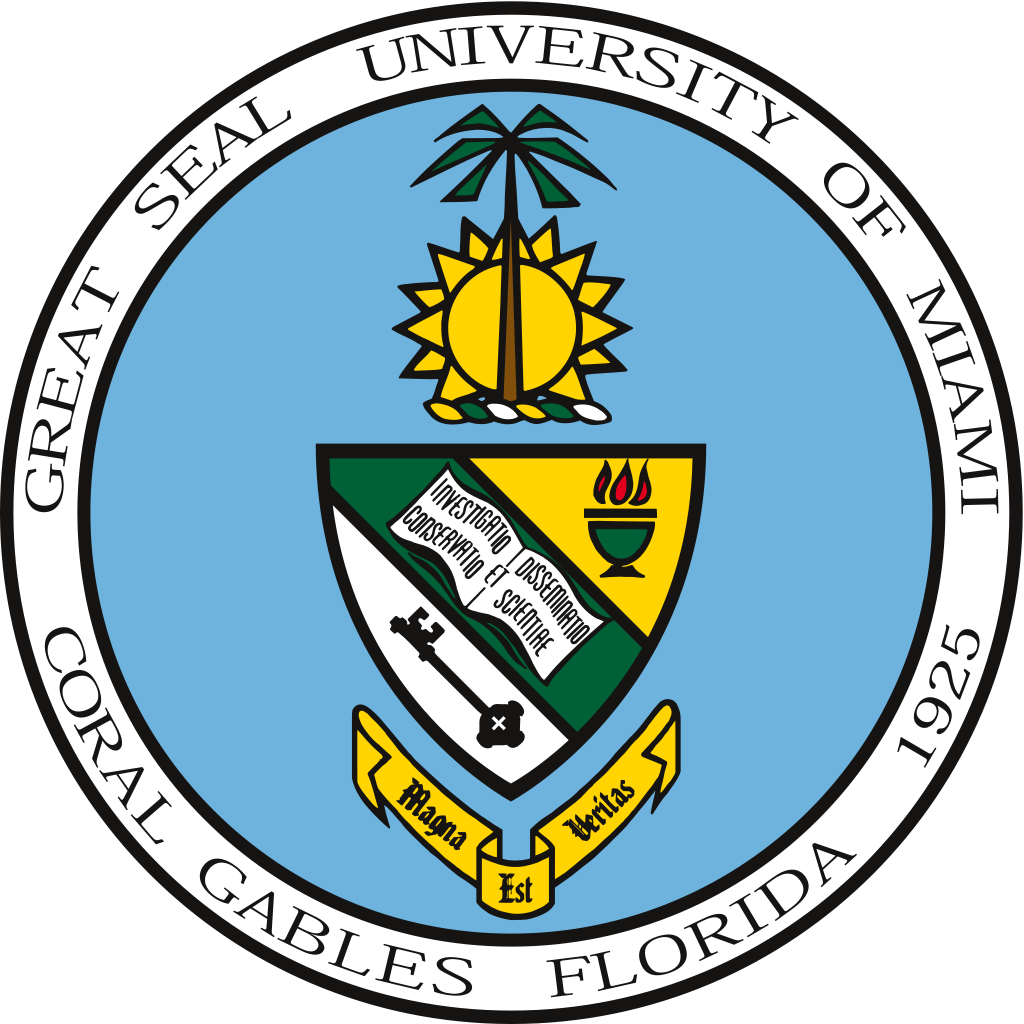
Joined the chemistry and biochemistry faculty at the University of Miami as an Assistant Professor
1994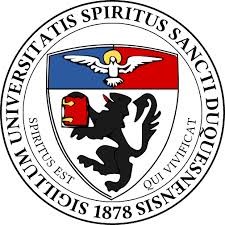
Moved to Duquesne University as An Associate Professor and the Director of the Center for Computational Sciences (CCS)
2000Promoted to full Professor, and was honored as the first Fr. Joseph Lauritis Endowed Chair in Teaching and Technology at Duquesne
Chair of the Computers in Chemistry (COMP) Division of the ACS
Faculty Mentor of the ACS Student Members Chapter at Duquesne University
2008Chair of the NSF Chemistry REU Leadership Group
Member of the ACS Undergraduate Programming Advisory Board (UPAB) for ACS Society of Education (SOCED)
“Teacher of the Year” from the Omicron Delta Kappa National Leadership Honor Society Duquesne University
2011 President’s Award for Excellence in Service to the Mission from Duquesne University
American Chemical Society Fellow
2012Chair of the 2013 ACS National New Orleans Meeting Undergraduate Programming
American Chemical Society Ambassador
Advisor of the Year, Duquesne University Center for Student Involvement
Creative Teaching Award from the University Center for Teaching Excellence
Induction into the University’s Scholarship Hall of Fame Office of Research
President’s Award for Excellence in Teaching from Duquesne University
2015